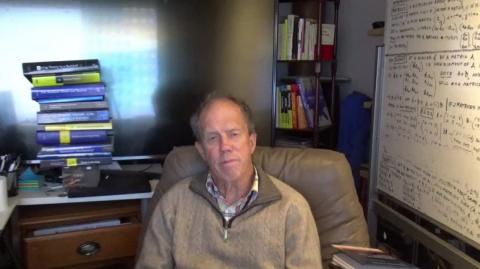On The Democratic Loser - MGTOW
In this video I conduct some exposition on the democratic spirit as outlined in Plato's Republic. Those with the democratic spirit will click away before the video is finished.
Patreon
https://www.patreon.com/ground....work_for_the_metaphy
Paypal
https://www.paypal.com/cgi-bin..../webscr?cmd=_s-xclic
Script
http://www.gftmom.com/portfoli....o-item/on-the-democr
He lives from day to day indulging the appetite of the hour, and sometimes he is lapped in drink and strains of the flute; then he becomes a water-drinker, and tries to get thin; then he takes a turn at gymnastics; sometimes idling and neglecting everything, then once more living the life of a philosopher; often he is busy with politics, and starts to his feet and says and does whatever comes into his head; and, if he is emulous of any one who is a warrior, off he is in that direction, or of men of business, once more in that. His life has neither law nor order; and this distracted existence he terms joy and bliss and freedom; and so he goes on.
This short excerpt from Plato’s Republic sufficiently captures the spirit of the democratic man. Where such a creature values freedom above all else, he conceives of freedom only in terms of that which is outside of him. Internally this is a man who is completely and fully bound by his passions. His pursuit of pleasure compels him. Any restraint from without that may be seen as an attempt to impede him in this singular task he perceives as an impingement upon his freedom and he will rebel against all such restraints accordingly.
His maxim is one of “Live and let live”; a sentiment all too common in our time and all the more praised and encouraged in a society full of such men. For who can argue with such a simple and seemingly self-evident maxim? Yet no parent to date would ever take-up such a maxim in relation to their own children. For we all know that a child is a slave to his base passions and pleasures. The child would eat candy to his detriment. The child rebels against all that he finds displeasing and resents the impositions his parents have put upon him in controlling his indulgences.
Yet the democratic man is no different in his appetites to the child he would scorn for similar behaviors. Though his pleasures are not ones for cartoons or candy, his pursuit of sex, intoxication, alcoholic or narcotic, video games, or other mindless media consumption differ from the child merely in degree and not in kind. The democratic man sees all form of pain as distasteful. He is unable to consistently will that which is higher than the pursuit of pleasure. He winged at the discomfort that reading can bring about. If a movie, abundant in flashing lights and rapid scene changes has not been made on the subject, he is all but ignorant of the content of most books. And though this man disdains books or any other mechanism of learning which is not immediately coupled with his preferable form of pleasure, he disdains the man who would take notice of his effeminacy and dare speak it out loud. “Live and let live” he will retort, and follow up that “Books are not his thing.”
Furthermore, he blames the medium for his inability to overcome the necessity of pleasure to accompany everything he does. “Books are boring!” he proclaims! They need to make the material more exciting! Yet here too this democratic man finds himself in surprise that after many years he has not climbed higher than a banal form of mediocrity in everything he does. He invents terms like “genius”, “savant”, “gifted”, “good genes”, and “fast metabolism” to brand those who put pleasure aside to achieve mastery, while these terms serve the secondary purpose of excusing his own failure to do the same.
At best, the democratic man achieves competency in a single craft. That single competency he then exploits for money which he craves almost as ravenously as pleasure itself. Money too, however, he would forgo if it was not for the want it would impose on his basic needs and his inability to gratify his passions and desires. Yet only for these reasons will such a many endure, grudgingly, any hardship, such as work, which he still sees as a great evil hoist upon his person. His other maxim is that of “Find a job that you love and you will never work a day in your life!”
0



 Igor MGTOW And Video Games
Igor MGTOW And Video Games
 Sandman
Sandman



 profhugodegaris
profhugodegaris


 Zuberi87
Zuberi87
 RedKnight
RedKnight



 SoloMan Zone
SoloMan Zone



 Redonkulas Popp
Redonkulas Popp




Log in to comment